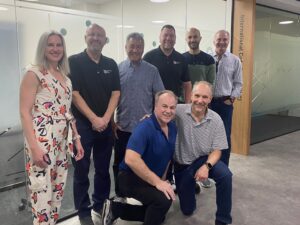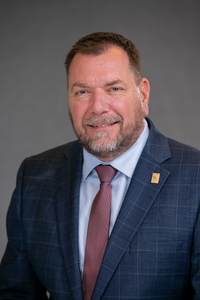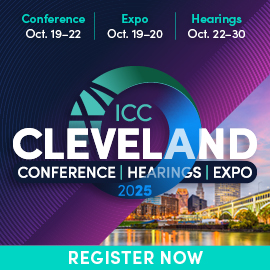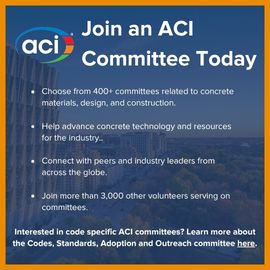
The International Code Council Board Executive Committee in the UAE
The executive committee of the Code Council Board of Directors visited the United Arab Emirates to meet with customers and partners and attend the inaugural event of the ICC-MENA Regional Office.
In February 2023, the executive committee of the International Code Council (ICC) Board of Directors visited the United Arab Emirates (UAE) to meet with customers and partners and attend the inaugural event of the ICC-MENA Regional Office. Moreover, the board observed the progress that the International Code Council has made in the region since establishing our first office outside of the United States three years ago.
The board sanctioned the move towards increased globalization of the International Code Council’s work about five years ago, and those who have followed the developments in this area might expect that our brand recognition and collaborative efforts overseas have grown accordingly. However, having the opportunity to witness firsthand the impact that the “boots on the ground” approach has had in the region was truly impactful.
The Code Council’s Global Presence in Dubai to Improve Building Systems
The International Code Council’s office in Dubai was established to promote the family of solutions across the whole MENA, or Middle East and North Africa, region. It is managed by Mohamed Amer, the Regional Director of Operations for ICC-MENA, who is celebrating his third anniversary with the International Code Council this month.
Amer has been able to build strong relationships with the organizations that drive the demand for our solutions, such as the Authorities Having Jurisdiction (AHJs), as well as many of the companies and organizations that engage with those AHJs to impact the regulatory policy. This strategy has created a strong network of manufacturers, designers, consultants, testing labs, academics, standards developers and regulators that are united in the common mission of building safety.
Promoting Innovative Building Systems in the MENA Region
The workshop that was held on February 15, 2023, Enabling Safe and Successful Use of Innovative Building Materials, Systems and Methods, featured ICC-ES and the services of our conformity assessment group. In particular, the workshop spoke about the solutions that ICC-ES can provide to manufacturers and AHJs to enable the safe use of innovative products and processes in the construction sector.
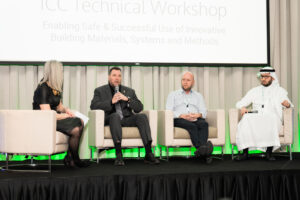
The AHJs that have become close collaborators and partners with the International Code Council, including Dubai Municipality, the Saudi Building Code National Committee and the Abu Dhabi Department of Municipalities and Transport, attended the workshop and some offered presentations about new technologies being accepted in the market, such as 3D concrete printing.
Technical presentations were also offered by manufacturers of numerous innovative technologies, including voided slabs made from recycled plastic that reduce the amount of concrete used in construction, wooden structural elements produced from palm tree waste, and innovative, cleaner steel rebar and structural components.

In addition to providing a forum for the sharing of valuable information through the presentations, ICC-MENA envisioned the workshop as a platform for the various stakeholders to connect and engage in collaborative discussions about achieving common goals.
From observing the attendees and their engagement in various conversations during the workshop and networking breaks, the workshop’s impact was clear. Manufacturers appreciated having their products highlighted to regulators and designers, including those that have received and been able to leverage the use of ES Reports, and regulators had the opportunity to share updates on the progress being made to enable the use of emerging technologies in construction.
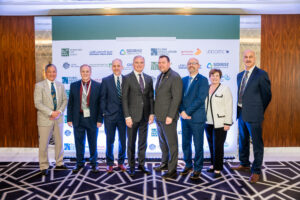
Designers and standards developers were able to gain important information about how new products can be safely incorporated into their emerging projects. All participants recognized and appreciated the role that the International Code Council played in facilitating this forum which connected diverse perspectives and experiences.
The Code Council’s MENA Building Science Advisory Council
Bringing industry stakeholders together is something fundamental to the work that the International Code Council has always done, and it was great to see these efforts extend to the MENA region.
We saw it again during the meeting of the ICC-MENA Building Science Advisory Council meeting that was held on the day prior to the workshop. This Council is comprised of a carefully curated group of knowledgeable and experienced industry professionals that provides ongoing advice and support to the ICC-MENA office as it reaches out to stakeholders throughout the region.
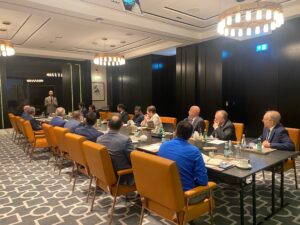
Council members recognize the role that ICC-MENA can have in opening markets to their products and services and in facilitating dialogue between the various industry participants. Most of the members of the Council also participated in the workshop, and there was great enthusiasm to continue the engagement perhaps through annual workshops or smaller monthly dialogues that also engage the authorities.
Bringing Together Industry Stakeholders
In addition to these valuable opportunities to engage with the wider building safety community in the MENA region, we had the opportunity to briefly visit the ICC-MENA office and visit two manufacturers who have, or are in the process of receiving, certifications from ICC-ES for their products.
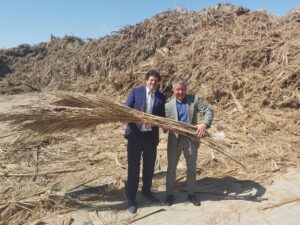
The first site visit was to Desert Board – a manufacturer based in Abu Dhabi that produces Oriented Strand Board (OSB) from palm fronds. They market their products for use in house framing, partitions, flooring, molding, signage and other applications. This is an innovative technology that can potentially offer a sustainable alternative to particle board, using palm tree waste collected locally in the UAE that would otherwise be disposed of in landfills. The sustainable manufacturing process utilizes the wood dust generated during the board manufacturing process for energy production.
This makes Desert Board almost self-reliant for energy needs. The boards are also produced using various other disposed wood, which in turn helps to fuel the circular economy.
Next, we visited Emirates Steel Arkan, also in Abu Dhabi. This large company manufactures a wide range of steel products for a variety of industries, including rebar, wire rod, heavy sections and sheet pile for use in construction projects worldwide.
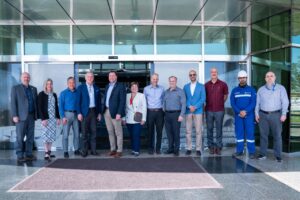
In addition to engineering their products to use less material and their plants to operate efficiently and utilize recycled scrap steel, Emirates Steel Arkan has established an environmental partnership with Al Reyadda Carbon Capture Facility, to implement enhanced oil recovery (EOR) in subsurface oil reservoirs and free up natural gas that would otherwise have been used for oil field pressure maintenance.
Both site visits enabled us to learn about innovative and sustainable technologies and production processes that have been developed in the region and to discuss with the corporate leadership ways in which the International Code Council family of solutions can better support and facilitate acceptance of their products, based on compliance with relevant codes and standards, throughout the region and beyond.
It’s clear that our building safety mission is truly an international one, and it was meaningful to see how the family of solutions can be accessed, adapted and localized to address the specific needs and challenges in the MENA region. The level of innovation in construction to achieve sustainability and economic goals in the region is extreme, and the exchange of information and meaningful dialogues created value that my colleagues on the board and I can bring back to our roles in the United States and that can help to inform the future direction of our organization.
